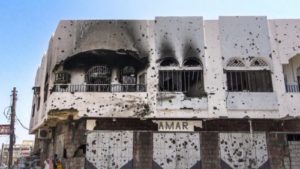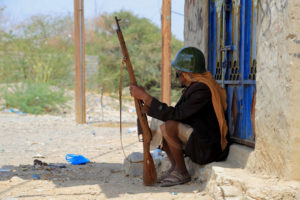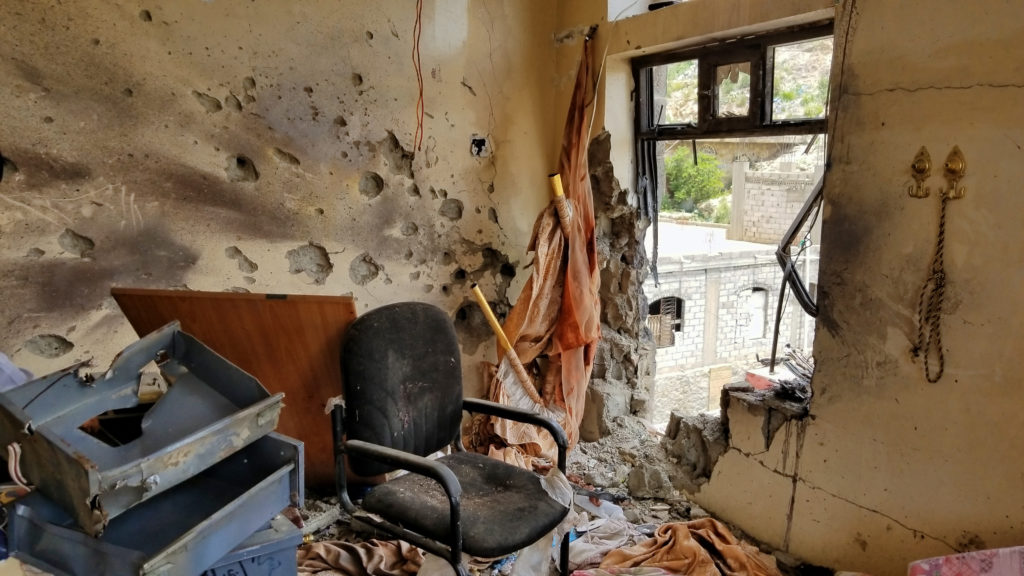In This City is a challenge to journey with us in prayer for 12 key cities in 2019. We ask you to commit to praying for fruit that will ripen and bear the seeds for mature, vibrant and multiplying churches across the Arab world. Find out more in this article from the leader of Pioneers’ Middle East Region.
Introduction
Nestled into the mountains of southwestern Yemen, you will find the city of Taiz. Located near the Red Sea port city of Mocha – the place that originated the glorious chocolatey-coffee beverage – Taiz towers 1,400 metres above sea level. It is the capital of its governorate, which stretches a vast 12,605 square kilometres..
Ibn Battutah, a Moroccan Berber scholar and explorer who widely travelled the medieval world, visited Taiz and described it as one of the largest and most beautiful cities in Yemen.
Historically, Taiz was known for producing coffee that was considered some of the finest in the region. Today, it is the most important commercial centre in Yemen as Taiz has the most fertile farmland in the nation. Coffee remains a significant part of the economy, but fruit and vegetable crops, as well as qat*, are grown near here. Taiz is also known for its cheese, produced in surrounding rural areas and sold in the local markets.
The city is known as a centre of education, culture, and trade. Some of the oldest buildings and sites in Taiz contain symbols of Christianity in their design. These are reminders of the Christian population that existed in Yemen before the spread of Islam.
Today you’d be lucky to find a wall in the entire city that is not marred by bullet holes. Taiz lies in the borderlands of Yemen’s North-South divide. It is, therefore, one of the main front lines in the ongoing war between the Houthis and the Saudi-led coalition that backs the internationally recognised government.
Over ten thousand people have died in the Civil War. Two-thirds of Taiz’s population has left to find safety in other parts of Yemen. Those who remain have difficulty getting by from day to day. The Houthis have blocked all access to Taiz, bar one road, which is the city’s lifeline. Daily mortar shells can be heard echoing in the valleys. The devastating impact of the war has made accessing water and electricity very difficult. Water tankers won’t enter certain districts of the city due to the risk of being killed. The snipers that surround Taiz do not discriminate, pulling the trigger on old and young if the line of sight is clear.
*Qat is a kind of tree, native to the Horn of Africa and the Arabian Peninsula. Its leaves are chewed or mixed into drinks as a stimulant. Its natural compounds give a similar high to amphetamines.
About Taiz

Population: Before the war, an estimated 600,000 lived in the city with 2.61 million in the Taiz Governate
Religion: Pre-war estimations were 99.6% Muslim, 0.2% Christian, 0.1% Hinduism, 0.1% non-religious. Today, our highest estimation of the number of Yemeni believers in the country would be 0.02%
Ethnic groups: Arab, Afro-Arab
Geographical size: 12,605 km² | 7,832 mi² (size of the Taiz Governorate)
Location: Southwest Yemen
Key historical events: Turan-Shah, the older brother of Saladin, conquered Yemen for the Ayyubid empire in 1173 and designated Taiz as the capital in 1175. In 1500, the capital was moved to Sana’a by the ruler of the Taharid dynasty. In 1516 Taiz came under Ottoman control until 1918 when Yemen became independent. In the wake of the Arab Spring in 2011, fighting in Taiz resulted in anti-government forces seizing control of the city from President Ali Abdullah Saleh. As part of the 2015 Yemeni Civil War, the Houthis and forces loyal to the former president took the city. Taiz was effectively under siege, and the United Nations warned of an ‘extreme and irreversible’ food shortage if fighting continued.
Challenges
 People
People
The UN has designated Yemen as the worst humanitarian crisis in the world. Around 80% of the population needs assistance with over half on the brink of starvation. Devastating diseases, such as cholera, are widespread. Tragically, only 45% of hospitals
are functional. Medications are in short supply, and there is little to no clean drinking water, so diseases that are preventable and treatable have claimed the lives of thousands. Taiz is one of the areas of greatest need as it remains a battlefront.
Seekers
Fundamentalist and extremist groups fighting for the coalition forces have seized power and influence amid the chaos in Taiz. This is an extra deterrent to seekers in the city. Damaged infrastructure has made internet connections difficult, which limits the ability of seekers to search online.
Team
A network of believers inside the country began ministering among Taizis. Despite the challenging conditions, the number of those meeting for fellowship continues to grow. Many brothers and sisters have been displaced to other areas, but they continue to share a message of hope and joy in Christ.

Prayer points
-
Pray for an end to the war. It has claimed so many lives and has left the country desolate. Pray that despite ideological differences, peace would come to Yemen.
-
Pray for the desperate social and economic situation. People are dying from poverty and preventable diseases. Intercede for Yemen that despite the situation, hope would be ignited.
-
Claim in Jesus’ name that hands would be lifted high, and Christ would be declared King over this nation. Pray that even though only 0.02% of the country’s population is Christian, Jesus would reveal himself to many through miracles. Pray for the gospel to go forth in power despite current legal restrictions.
-
Pray for provision and sustenance for the believers who are left. Pray for their minds, bodies, and spirits. Pray that they would look to the Lord in these times of desperation and lean on him. Especially pray for a Taizi brother who has been in jail for a year and a half because of his faith.
One last thing…
One of our team members has shared a link to allow you to pray daily with the network of believers in Yemen. Click here and follow the instructions to subscribe to the feed through the PrayerMate app.
Thank you for praying with us
Next month, we’ll pray for the city of Cairo in Egypt.